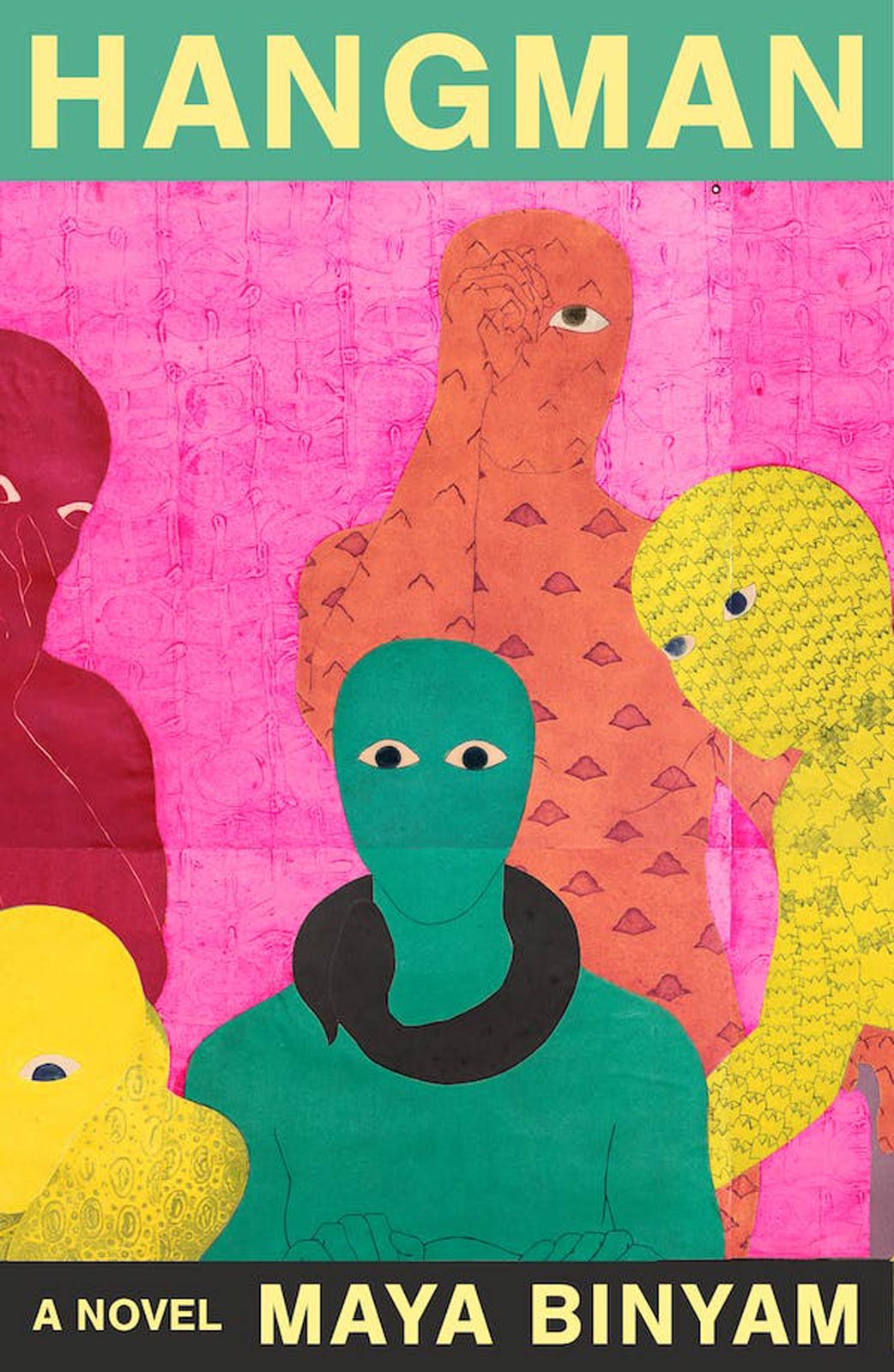The writer’s debut novel traverses an unnamed African nation, exploring the symptoms of diaspora in terms of mourning, identity, and truth
My friends and I always talk about how disorienting it is to be in New York after a long period away, particularly time spent abroad. There’s a sense of social estrangement I’ll experience trying to ease back into the scene, where the cultural performance of living here becomes unfamiliar, and almost repulsive instead. It’s an inexplicable situation, comparable to the suburban artificiality you’re confronted with when you go home to visit family over the holidays. I think of the time I moved back to Korea as an adult during the summer of 2019; complicated feelings of alienation and detachment are especially poignant for immigrants and individuals sensitive to irregular life circumstances, making us ask whether we left a part of ourselves behind, no matter where we are.
These are some of the questions I encountered while reading Maya Binyam’s new novel Hangman, a fictional story about a man who returns home to Sub-Saharan Africa after 26 years in America. Written in first person, we never learn his name or which country he’s living in. In the first chapter, he tells us he’s been mysteriously prompted to board a flight. His suitcase has already been packed, and the trip details prearranged—though we don’t know why. The man describes a scene from a movie that a passenger is watching on the plane—one of the characters asks a question that becomes pertinent to the book: Do you belong to anybody? Upon landing, everything and everyone is unrecognizable to him, until he’s approached by someone claiming to be his brother. This event sets the man off in search of his real brother, who is dying. He interrogates the nature of reality over the course of his existential journey, a series of surreal conversations and encounters unfurling along the way.
Formerly an editor at the Paris Review and the New Inquiry, Binyam is the daughter of Binyam Tamene, a political refugee from Ethiopia to whom Hangman is dedicated to. After graduating from Yale University in 2016, she lived in her father’s homeland for a time, a formative experience that inspired much of the premise of her book. When her father came to visit her in Ethiopia, they received a call that Binyam’s uncle—Tamene’s last surviving brother—was “sick,” spurring a four-day voyage to the countryside that, unbeknownst to them, had been orchestrated by relatives waiting to deliver the news that Binyam’s uncle had already passed away.
Fascinated by this theatrical act of collective empathy, and in accordance with traditional Ethiopian customs of mourning, Binyam’s Hangman is a testament to the unspoken effects that diaspora and history have on identity, cross-examining the meaning of possession as it pertains to the self, and what we lose or gain in pursuit of hard-earned truths.
“He thinks of happiness and sadness; he also struggles with questions of life and death. Distinctions between life and death and safety and persecution become very confusing in the lived experience of [the refugee].”
Vivien Lee: Tell me about your time in Ethiopia.
Maya Binyam: In Ethiopian culture, generally, when someone passes away, you won’t be called up on the phone. Your closest friends and family will be alerted of the death first, and then they’ll gather so they can tell you all together. But when someone is living in diaspora, that process can become incredibly protracted.
My father was essentially being protected from the truth that his brother had already died. When we were told to go see my uncle, it led us on a very long and convoluted journey, because he lived in this remote village that was incredibly difficult to get to. We had to take a plane and travel by car for two days, and family members would travel with us, and then shepherd us off to the next town. Deep down, [we knew] we were heading to a funeral, but it wasn’t acknowledged until we arrived, which was completely overwhelming—being separated from the concrete knowledge that someone had died, [and then] arriving at this collective space of grief where everyone was wailing. I felt very much like an outsider, confused as to why all of these people were screaming—and why my dad, who normally didn’t display emotions, was suddenly crying. It felt like they were all keyed into this play that I didn’t know about, because I hadn’t gotten my lines or something.
Vivien: Were there other reasons you felt disconnected from this experience?
Maya: When I go back to Ethiopia, I’m identified by my family as an American, and my grasp of the language is not fluent at all. There’s a lot that I’m actively trying to decipher, even if there’s a fundamental familiarity. Even though I’m my father’s daughter, I wasn’t the intended object of that [theatrical] manipulation.
Vivien: Is Hangman’s narrator based on your father?
Maya: I might have an idea of who I’m trying to emulate while I’m writing a story. But inevitably, a series of distortions happens which I can’t even trace myself. By the end of it, I’m left with a character who contains aspects of my father, and other people I know and my perception of them. But I can say that he shares a number of biographical details with my father. Like the narrator, my father was a political prisoner in Ethiopia and came to the States as a refugee in the ’80s.
Vivien: Are there any other characters based on people you know in real life?
Maya: There is one character based on my father’s cousin, who I’ve never met. But I heard a lot about him growing up, and he holds this kind of mythic status. In the first chapter, there’s the story of a child falling in love with another student in his class, and he winds up being humiliated by the principal. He drops out and gets really good at shooting guns, and learns that he can basically get anything he wants by threatening people with a gun. And he winds up hanged.
He was a vigilante without an ideology, whose origin story is so bizarre—being jilted in love as a five-year-old. Not all of it is true, but it’s larger than life. I think that’s how stories become when they are passed on—there’s some moral or ethical question that needs to be grappled with.
Vivien: I love that the book is riddled with so many philosophical musings. It feels like everyone the narrator encounters is leading him to this bigger purpose, more than just finding his brother. At the same time, he seems very stubborn and reluctant. I found his obsession with appearances—whether someone was ugly or good-looking—quite funny. What made you want to write him this way?
Maya: I do think the narrator struggles with binary thinking. And seeking refuge kind of demands it. He thinks of happiness and sadness; he also struggles with questions of life and death. Distinctions between life and death and safety and persecution become very confusing in the lived experience of [the refugee].
Refugee is a political term that has no legally-binding definition. I think—because of his status as an American citizen—he tends to think of his own life as something that’s protected, in distinction from the people he encounters in his home country. When he meets someone new, he almost reads them sociologically, and listens to their compulsive storytelling for signs of their quality of life.
Vivien: What was the reason for the omission of proper nouns?
Maya: The more I wrote, the more interested I was in trying to figure out how to conjure a place through interactions between people, [rather than via] shorthand signifiers. I knew I didn’t want to be hemmed in by a specific history, even though the country—as it exists within the novel—contains a history that’s referenced throughout.
Vivien: What did your family think of Hangman?
“I might have an idea of who I’m trying to emulate while I’m writing a story. But inevitably, a series of distortions happens which I can’t even trace myself.”
Maya: It’s funny, because my parents don’t really read novels frequently, and they certainly don’t read books in English. My dad and I went to Ethiopia in March when I’d just gotten the galleys, so I gave it to him when we were at the airport and he started reading it on our flight—which, you know, the novel begins on a plane journeying back to the narrator’s home country.
I think he perhaps overidentified with the narrator, to the extent that it prevented his reading the book as a novel. At one point, he said reading it was difficult because he couldn’t tell if he was reading or if he was speaking. For him, it was exceptionally immersive.
Vivien: Speaking of immersive, I have to ask what your daily ritual is.
Maya: I used to be so ritualistic and particular about how I wrote, and I’m trying to get out of that. I’ve always had a full-time job in addition to my editing and freelance gigs. So whenever I wrote fiction, I’d do it super early in the morning before I had to get on the train and go to the office. This is true for so many people who write fiction because there isn’t really a functioning economy that exists around the labor that goes into it. I was always kind of resentful of that.
But I’ve happily found that I can write under unideal circumstances—like, you know, at the end of a bad day or something. There are certain things that I find to be completely threatening to writing, and those things are my phone and the internet. If I’ve spent too long on the internet, then the part of my brain that’s able to think is really gone for the day.
Vivien: That’s something I found refreshing about this novel. It doesn’t revolve around internet culture in the way that a lot of contemporary fiction might today.
Maya: My life would probably be happier if I could summon more interest in my online life, but I really tend to view it as something that is just so bad for me, and anti-everything I value. I’m constantly battling with it, but I never want to give it more credence than it’s due. But I don’t know—I am envious of people who can spend their days there and find meaning in it.





















